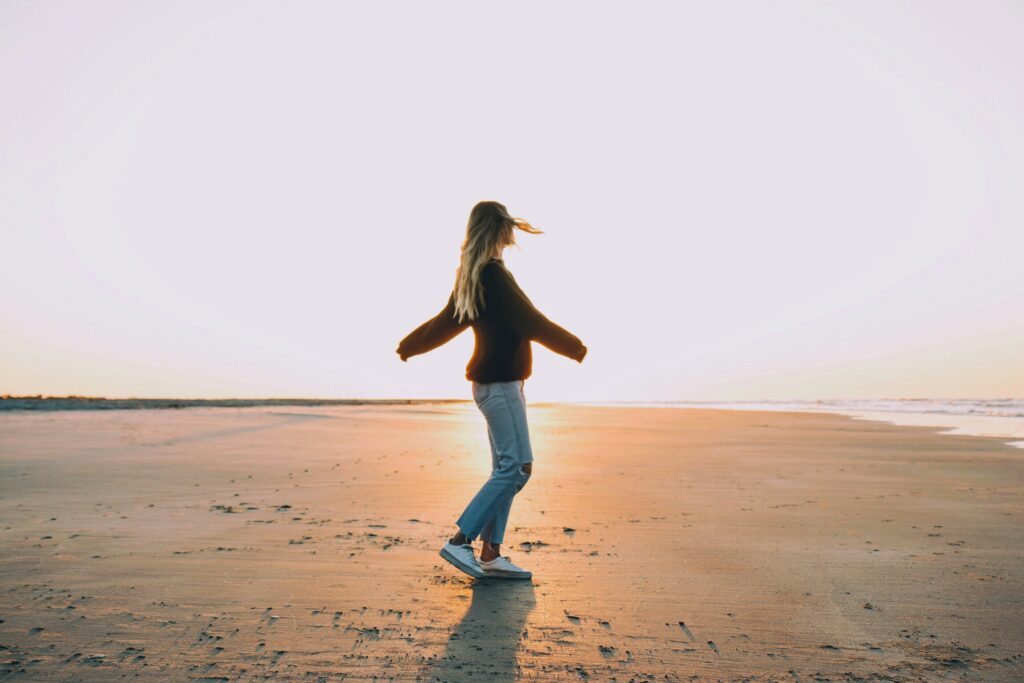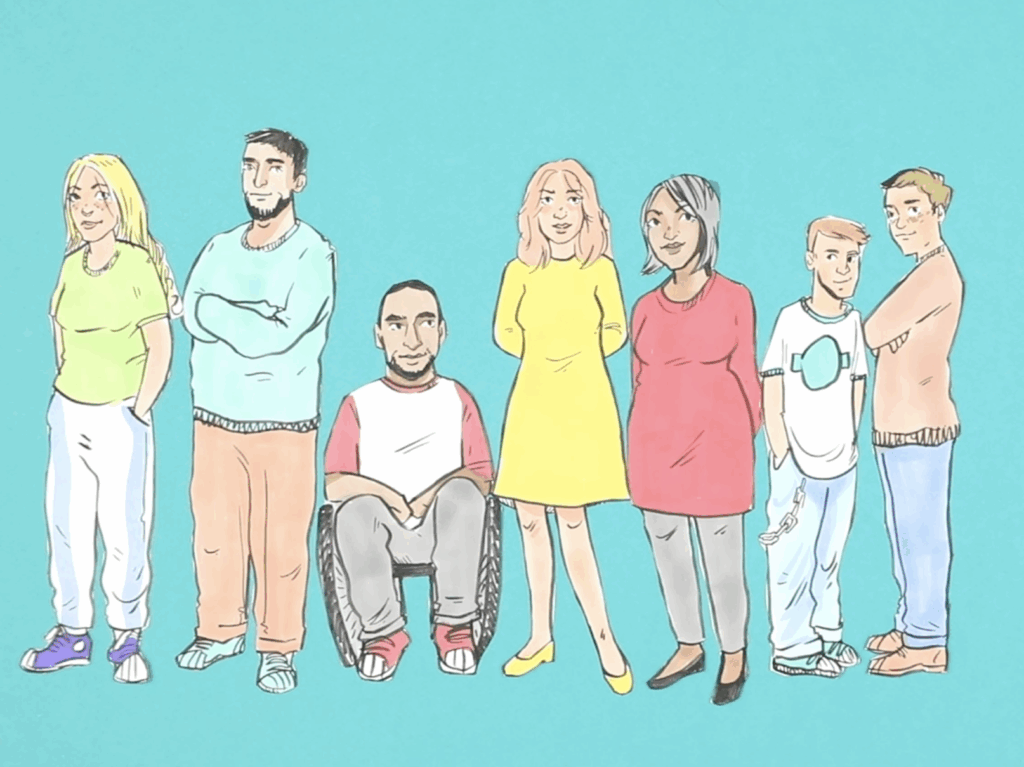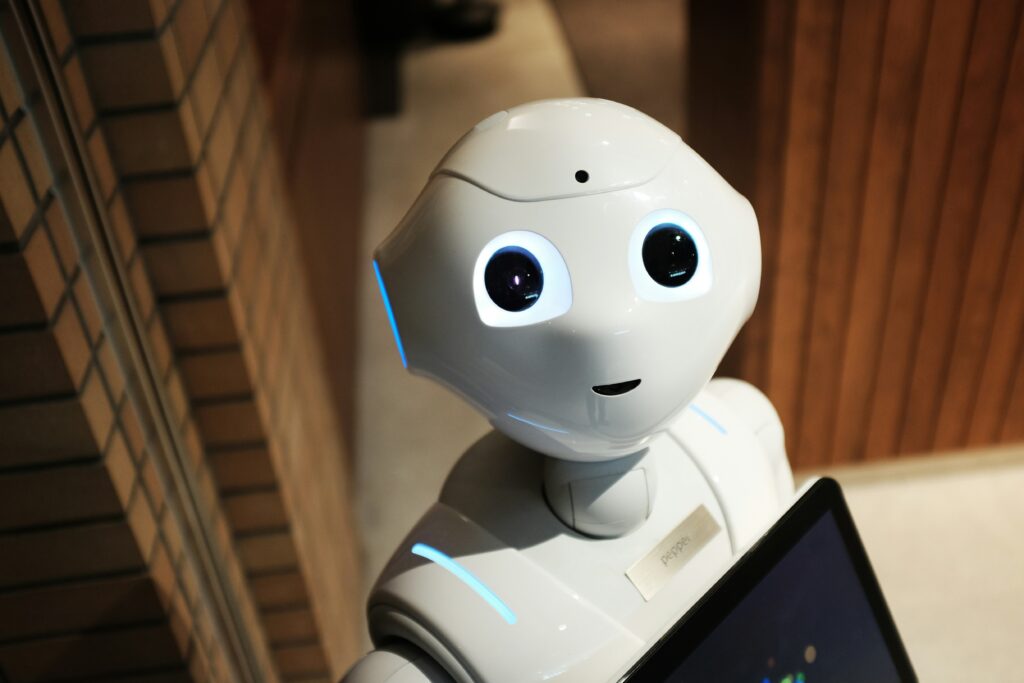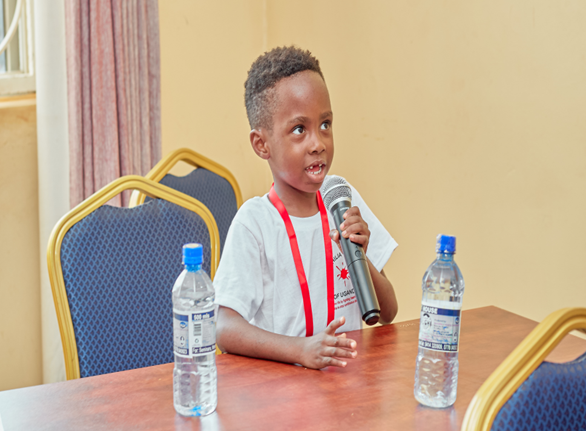Raising girls with Type 2A von Willebrand disease (part 2)
In the second part of their blog about family life, Alex and Jo talk about how they approach raising girls with Type 2A von Willebrand’s, and share a positive message for other families affected by von Willebrand disease.

Family life is busy for Alex and Jo (pseudonyms). They’re keen to ensure that all of their children are able to do everything they want to do in life – but with three daughters affected by Type 2A von Willebrand disease, it isn’t always straightforward.
Always being prepared
Alex and Jo’s daughters only have treatment after they have a bleed and, for that reason, Jo finds it hard not to be within easy reach of them. But she also accepts this as just part of everyday life.
“I would never want to leave them when they were young in case something happened,” says Jo. “I needed to be there and know I was able to deal with it – that was just our life.”
Jo adds: “There are extra things we have to think about all the time too. I always have ice packs and treatment on me, wherever we go.”
As well as making sure she’s close to their school during term time, Jo also gets involved with school trips – though most other parents think it’s just because she’s helpful.
“Some of the mums say, ‘Oh, I thought you worked at the school…’” she says. “They think, ‘She’s a helpful mum, she helps out on all these things,’ – but no, I just go on all of the trips!”
However, she’s keen that her daughters don’t feel crowded or restricted by her being there. “I tell the girls that I want to be able to help out. Really, it’s so that I know they’ve got the cover if they need – but I do also love that I get to go along with them. It makes for lots of moments to cherish.”
Making everything possible
Alex and Jo work hard to make sure all of their children are able to live a fulfilled and happy life. They describe the unseen efforts they go to, to make everything possible for the girls who have von Willebrand’s.
“We go along in front of them, clearing the way, making sure everything is in place so that they feel as normal as possible and can experience and enjoy life as they should,” says Jo. “We don’t want them to live with something they feel is hindering them. And we want to give them the confidence to do that for themselves when they grow up.”
The girls take part in various activities – they all dance, and one of them is particularly sporty. While Alex and Jo are concerned about participation in contact sports, they focus on doing what seems best for each of their daughters girls individually, enabling them to get involved in the activities they’re really interested in.
Using experience
This approach is very much informed by Alex’s childhood experience. He describes going to summer camps run by The Haemophilia Society, and recognises that, in his case, having von Willebrand’s perhaps opened up opportunities.
“We used to do abseiling, windsurfing, rock-climbing and gorge-walking, and do all of these things with nurses there and bags of treatment all around us. Most of my friends, didn’t have the opportunity to go and do that,” says Alex. “Then, when I was 14 the hospital arranged a trip with one of the haemophilia centres in Italy, and we went out to the Olympic training centre in Italy for two weeks. I was very athletic, always doing sports.”
He continues: “That’s very much how I’ve dealt with the children – don’t wrap them in cotton wool. There are certain things, the same as when I was at school… you know, I had to stop playing football, it’s a contact sport.
Teenage years
Andrew recognises that, having reached their teenage years and started their periods, there are elements of his daughter’s experience of von Willebrand disease that are different from his own. Raising girls with Type 2A von Willebrand’s includes tackling female-specific bleeding.
All of Alex and Jo’s daughters have heavy periods. They take tranexamic acid, which helps, but Jo says they hate the taste of it and still find them difficult to deal with. Staying objective through this isn’t easy, and she admits that, as a mother, she finds it difficult and upsetting when her daughters struggle.
“The turning point is now there’s actually a monthly cycle, there’s a plan that needs to be put in place,” says Jo.
Despite Alex’s knowledge and confidence, alongside family support, Jo says she sometimes feels quite isolated.
“As a mum who doesn’t have the condition but has girls who do, it would be nice to connect with other mums who have daughters with von Willebrand’s. We know one family who have a younger daughter with von Willebrand’s but her type is more severe,” says Jo.
“It would just be nice to speak to somebody else and say, ‘What do you think about that?’ or ‘What have you been told about this?’ That side of things is sometimes missing.”
Being there for others — and for yourself
Alex, Jo and their daughters have connections with other families affected by bleeding disorders through a charitable organisation. They say being able to offer mutual support and speaking with other parents who have an innate understanding of what it’s like to have children with a bleeding disorder is reassuring. However, they still know few other families affected by von Willebrand’s. As the parents of older children, they also find that other families often look to them for advice.
“Usually, I’m the mum with the most experience,” says Jo. “It’s a privilege that people reach out to ask you things, it really is. It makes you feel like you can make a difference and support somebody else going through what you know is a traumatic or tricky time. It’s important and I love to do that.”
Jo admits, though, that she sometimes feels overwhelmed and is aware of a need to keep a check on her own mental wellbeing too.
“If you have a lot of things going on with your children and you’re also immersing yourself in that same world with everybody else, if you’re struggling to cope with your own things it can be both helpful and overwhelming,” she explains. “Sometimes you just need to take a step back to gather yourself together, and then you can come back. That way, you can be the best version of yourself and help other people with the things they need.”
Kindness and bravery
The bond between all of Alex and Jo’s daughters is strong. Jo is proud of how close they are, how they look after each other, and how the older ones share their experiences and understanding with their younger siblings.
“It’s so special and something I’m very grateful for,” says Jo. “Our daughter who doesn’t have von Willebrand’s is also a brilliant sister and is a very big part of the carer role with us.”
Alex and Jo encourage their daughters to face the world with kindness and bravery. Their hope is that they will feel confident to speak up for everyone with von Willebrand disease and be a voice for change at a time when there’s still not enough understanding of the condition.
Positivity and pillows
For other families raising children (boys and girls) with von Willebrand’s, and families experiencing a new diagnosis, they’re keen to stress the importance of accepting it as a part of daily life.
“Normalise it. Deal with it, be aware of it, but it will be okay and you should live your life,” says Alex. “Don’t walk around with your head hung low like it’s a problem – especially with how the medicines have come along.”
“You have to learn a new way of life, and that is to be prepared,” says Jo. “Have your pack that you take out with all the things you might need in it. That’s going to give you peace of mind. Accidents are going to happen – they happen to any child. You can’t worry about them, you just have to deal with them as and when they happen.”
“Von Willebrand’s isn’t something to be frightened about,” she continues. “It’s something you need to learn and understand, and be prepared for. That’s the best that you can do in the situation. It will be okay.”
“Don’t wrap them in cotton wool,” says Alex. “Just put a cushion on their bum! I say that and laugh because I remember when my mum and dad bought us roller skates… Me and my sister went out with pillows tied around our waists in case we fell on our bums. That’s the messaging, isn’t it – it’s very much just prepare yourself but don’t stop yourself.”
With our thanks to Alex and Jo for sharing their story with us.
Read part 1 of Alex and Jo’s story about raising girls with Type 2A von Willebrand’s.
Further information
A number of patient organisations and charities provide support and advocacy for people with bleeding disorders and their families. In the UK these include:
- The Haemophilia Society
- Haemophilia Scotland
- Haemophilia Wales
- Haemophilia Northern Ireland
- Local families with bleeding disorders
Further reading
‘Raising girls with Type 2A von Willebrand disease’ is part of a series about the parents of children with bleeding disorders. This also includes stories about the experiences of a mother whose daughter has Type 3 von Willebrand disease, and the parents of two boys with severe haemophilia A.
About the author
Kathryn Jenner is Communications and Community Manager at Haemnet Ltd.


